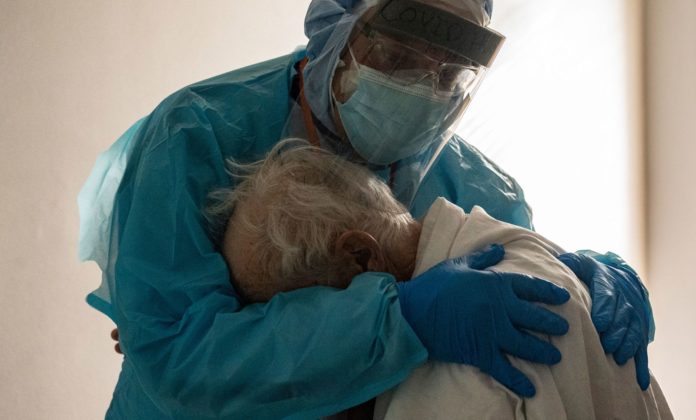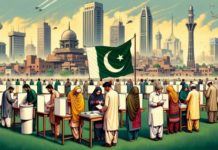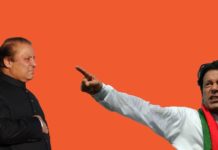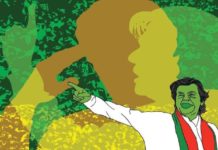If someone asked me about the year 2020 in December 2019, maybe I would talk about the importance of the US presidential election or the Olympic Games in Japan, because these two events were all the rage on electronic and social media. Although news of climate change or the growing role of social media was common, I could have expressed concern about the widening gap between rich and poor. It never occurred to anyone that the disease, which initiated with a few people getting infected in the Chinese city of Wuhan (whose name some people may be familiar with), would spread like a tornado among almost all human populations one after the other. It would have such an effect that human life would change completely in which everyone would be confined at their homes.
Homes and workplaces would be closed, religious places of worship or cinemas, football fields, the crowded bazaars would be all deserted. The fast-paced journey that has become a hallmark of modern life, and as man holds time and distance in his fist, would come to a halt. In cities, where traffic was considered a sign of noise and smoke, would only offer frightening silence. Only the hospitals would remain a thriving place where doctors and nurses would lay down their lives in an effort to save mankind from a deadly virus.
There is no doubt that modern day institutions, research centers and think tanks are zealously working to prevent such disasters and sudden natural calamities. At the same time, it is beginning to be understood that natural disasters and changes in political systems that occurred after generations or with a gap of centuries are now taking place on an almost annual basis. With all of this in mind, if we think about 2021, one thing can be said for sure and that is that 2021 is the year of vaccines.
How quickly a wide range of different vaccines can be made available and distributed in human settlements determines the survival of political governments, the highs and lows of economic indicators and the normalization of daily lives. 2020 was the year of the Corona epidemic, but. At the beginning of 2021, we can say that it is time to control this virus that has become a symbol of fear, chaos, and anxiety among human beings.
In the first half of the New Year, the development of various vaccines in the developed nations and the vaccination campaigns among the people, as well as the struggle for life and death among the people affected by the epidemic will be the dominant issue. An important priority in developed countries is the use of this vaccine among the elderly and people with pre-existing diseases to reduce the burden on the health system. Also keep in mind that according to the research so far, the physical immunity obtained from these vaccines is not permanent, which means that the use of vaccines will be a continuous process.
According to the World Health Organization, no country will have enough vaccines in the initial phases, so policymakers need to stay prepared for the most difficult discussions in the media and in the public sphere, i.e. who gets the vaccine first, and resultantly there could be anxiety and restlessness among the masses. Such a large-scale vaccination campaign is not easy, as has already been observed in the UK.
Starting a campaign in different parts of the same country at the same time is not an easy task. In the meantime, unforeseen difficulties may arise, rumors and anti-vaccine campaigns may gain momentum, especially on social media where evidence is beginning to emerge that people are being persuaded against the vaccines, especially in Islamic countries questions are being asked about the ‘Halal’ factor of vaccines. In a country like Pakistan where science is regarded as the weapon of the devil; thanks to the ignorant religious clergy. And a country that is already struggling with a polio vaccination campaign, policy makers will have to craft a strategy to handle both the negative rumors and the means to make sure that the vaccination process is initiated at the earliest.
There is no doubt that the availability of vaccines has raised hopes among the people. It is estimated that by the end of the year, four to five billion doses of various vaccines will be ready for use, which will help eliminate or reduce restrictions on humanity trapped in the second and third waves of the epidemic. But we must not ignore the voices that may arise as a result of the current vaccination campaign in rich countries, that is, the struggle to bring life back to rich countries will make clear the already existing gap between wealth and poverty. This could again be the cause of global unrest.
Oxfam has warned first world countries (mostly capitalists) against stockpiling of these vaccines, explaining the stockpiling process would dent poor countries. According to Oxfam, on the one hand, rich countries, where only 14% of the world’s population live, have purchased 53% of the most promising vaccines so far, that means they can provide their populations with at least three doses of these vaccines. In the race of stockpiling, Canada is leading the race, they have hoarded such massive doses of promising vaccines that they are in a position to vaccinate their population with five doses to each of its citizens next year.
In contrast, governments of at least 70 poorer countries would be able to provide vaccines to only one in ten of their citizens in 2021. Five of these poorest countries, with more than 1.5 million people already affected by the epidemic, include Kenya, Myanmar, Nigeria, Ukraine and Pakistan.
According to recent reports, 96% of Pfizer and BioNTech vaccines and 100% of Moderna vaccines have already been sold to rich countries, (AstraZence / Oxford) has promised that 64% of its supply will be for the developing nations, but at the same time, by improving supplies, only 18% of the world’s population will have access to the vaccine by the end of next year. It should also be noted that Astrazenca / Oxford vaccine supply deals in developing countries are mostly for countries like India and China and the poor, including the beloved homeland, have not made any deal with AsreaZence/ Oxford, and are dependent on The World Health Organization’s Covax pool.
The government of Pakistan has signed an agreement in this regard and will obtain 20-45 million doses under this program, but till when the government will be able to get their share is yet to be determined. In addition, according to reports coming in early December, the government of Pakistan has allocated 150 million dollars for this cause. It should also be noted that Pakistan is participating in the Phase 3 trial of vaccines developed by two Chinese companies and in case of their success, these vaccines will be provided to Pakistan on priority basis. According to the announcement of the government of Pakistan, the vaccination campaign is likely to start in April 2021.
However, the prompt delivery of vaccines and the collective effort of rich countries to avoid mere “thinking for themselves” would reduce the growing disparity between the rich and poor. Otherwise the selfish policies of the nations at this point will be the biggest obstacle in getting out of this global epidemic and starting economic activities. It is also possible that these policies could result in the economic downturn of Asian and African nations which could also lead to civil unrest.








